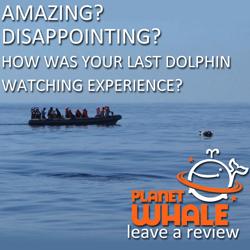
CEIC Centro de Investigación de Cetáceos-Costa RicaThe Centre for Cetacean Research (CEIC) - Costa Rica was founded in 2012, and developed from the original Whale and Dolphin Project in Golfo Dulce.
The Project was founded in 2005 in collaboration with PROCMAR, the Marine and Coastal Science Master Program of the National University of Costa Rica (Universidad Nacionál - UNA). PROCMAR is an academic initiative that aims to address the lack of professional support in the conflict between development and the use of marine natural resources in regions where marine resources and social inequity are abundant. PROCMAR extends beyond the formation of mainstream professionals; it pursues applied solutions through two practical means: the assessment of marine resources through science and technology; and the management of those resources to integrate the coastal communities’ best interests. Assessments done in both the field and laboratory have helped clarify the best regional approaches to aid in the conflict between local needs and wildlife, i.e., representative animal species such as nesting sea turtles, poison dart frogs and cetaceans. From 2005-2008 PROCMAR supported the dolphin project in Golfo Dulce in its population assessment. The goal was to identify critical habitat as a first step to plan and establish a Marine Protected Area (MPA) in Golfo Dulce.The non-profit organisation International Student Volunteers, Inc. (ISV) started to send volunteer groups in 2007, and with that became the most important financial support for the project. In 2008 Lenin Oviedo, the principal investigator of the dolphin project, finished his Master’s thesis, and started his PhD work.
Since 2007, the Golfo Dulce initiative has been in operation with the support of various groups, including International Student Volunteers Inc., who funds 70% of the project’s field work.
Since 2012, EarthWatch has started a collaboration with CEIC and filled existing budget gaps, with which it was possible to extend the research effort evenly over the entire year. The data from the last five years has shed new light on habitat use and behavioural traits that identify important feeding areas, reproductive, and nursing habitats of the two resident dolphin species. This is interesting, since previous research had focused mainly on defining main environmental factors influencing dolphin habitat. However, the understanding of how behaviour is related to the specific habitat structure is important in order to achieve a solid insight of the dynamics of organism as part of a complex ecosystem.
The past five years of extensive sampling have yielded to a sum of 400 records of different cetacean sightings, all organized in a data-base of 8 different species of cetaceans in total. In the 2009-2010 seasons, the project started to document the vocalizations and behaviour of Humpback whales, migrating through Golfo Dulce, by recording particularly the humpback whale "song" (an important indicator, as the area shows a high potential reproductive value). Many areas on the coast of Golfo Dulce are in consideration for development projects that would result in a high degree of ecosystem alteration and habitat degradation within the Golfo, and which would affect especially migratory species such as Humpback whales. Current research efforts focus on overall ecosystem health and the differences in habitat use of cetaceans outside the inner basin, specifically in shallow depths and transitional habitat near the Golfo Dulce entrance. Address300 m south of Escuela de Rincon de Osa
Town / CityRincon
State / CountyPuntarenas
Zip / Postcode60702
CountryCosta Rica
WebsiteTel0050627351438

|
|







